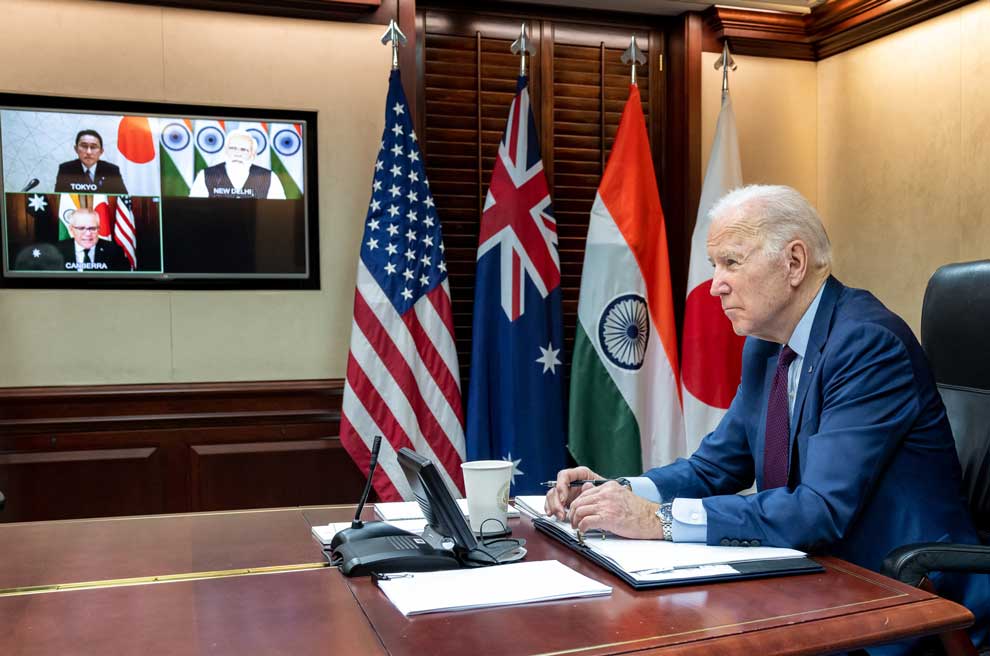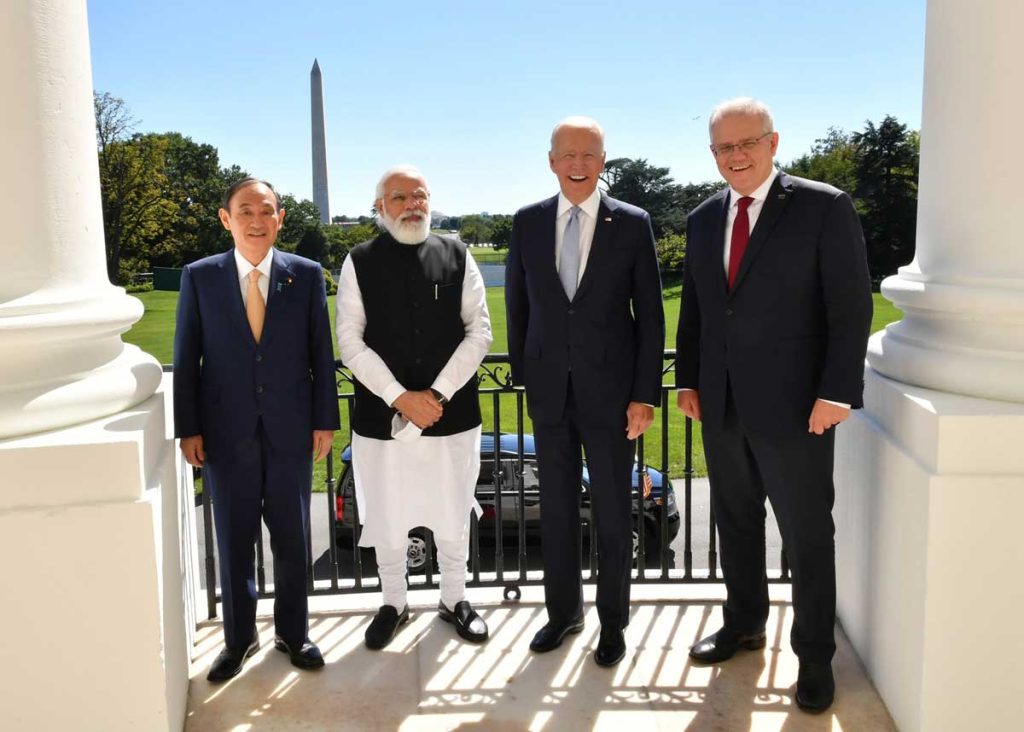Late Night Update on March 3 – 4 Indian Standard Time
The QUAD virtual meeting between Prime Minister Narendra Modi, US President Joe Biden, Australian Prime Minister Scott Morrison, and Japanese Prime Minister Fumio Kishida has concluded.

We have earlier reported that the Ukraine situation will most certainly be discussed, and discussed it was. Let us see which country said what.
What did India say?
According to the MEA, the developments in Ukraine were discussed, including its humanitarian implications, and the Prime Minister has emphasized the need to return to a path of dialogue and diplomacy.
According to India’s Ministry of External Affairs, the meeting also reviewed the progress on Quad initiatives from September 2021 Summit, and the leaders have agreed to accelerate cooperation.
What did the US say?
The US, which is leading the western countries in alienating Russia with a range of sanctions, reiterated its commitment to the sovereignty and territorial integrity around the world.
What did the Japanese leader say?
Japan will be hosting the next QUAD Summit in the coming months. Japan, which has allotted $100 million dollars in immediate assistance to Ukraine, said that the use of force or coercion to change the status quo is unacceptable, whether it is Russian aggression in Ukraine or in the Indo-Pacific.
Japan is specifically concerned that China would follow up on the Russian approach and seize Taiwan by force. As mentioned in this article earlier in the day, former Japanese Prime Minister Shinzo Abe referred to the possibility and wondered if Japan should allow the US to place nuclear weapons on its soil.
Original Article published at 5 PM, Indian Standard Time
Indian Prime Minister Narendra Modi will virtually meet with US President Joe Biden, Australian Prime Minister Scott Morrison, and Japanese Prime Minister Fumio Kishida on March 3, 2022.

The leaders of the QUAD nations will be continuing their dialogue from September 2021, which was held in person in Washington DC.
According to the Ministry of External Affairs, the leaders will exchange views and assessments about important developments in Indo-Pacific. But given that the war is raging in Ukraine, it will certainly feature in today’s discussions.
Let us see what is likely to be discussed. Stay with us for latest updates.
Ukraine – Which country stands where?
The Russian invasion of Ukraine will undoubtedly feature in the talks, although the Indian response is likely to be measured as before. While lamenting the war and advocating diplomacy, India abstained from voting on a UN Security Council resolution condemning the ‘Russian Aggression.’
India is also engaged in a dialogue with Ukraine, is sending humanitarian supplies, and focusing on repatriating its citizens stranded in the country.
But India has a decades-old friendship with Russia and is unlikely to commit to any actions that would fly in the face of its time-tested partner.
Meanwhile, the US is leading the western efforts to alienate Russia by imposing the harshest actions on the country.
Japan had even allocated $100 million dollars to Ukraine to help them retaliate against the invasion.
Australia said that would fund ‘lethal weapons’ for Ukraine to fight Russian troops.
COVID-19
COVID-19 vaccines, especially those made by Pfizer, were previously a part of the QUAD discussion, and the White House has said that hundreds of thousands of doses could be delivered to India as part of a QUAD initiative.
Although India has been largely successful in vaccinating the public with Oxford-developed but homemade Covishield and has progressed in developing other vaccines, Pfizer vaccines have never appeared in India despite being approved for emergency use.
The pandemic has had a tremendous impact on world economies, and the road to regrowth is likely to feature in the discussions.
Indo-Pacific
The main focus of the QUAD has always been the goal of establishing free navigation in the Indo-Pacific.
Japan has likened the Russian invasion of Ukraine to a possible scenario where China could invade Taiwan, and the former Japanese Prime Minister Shinzo Abe even suggested that his country could consider allowing the US to place nuclear weapons on its soil.